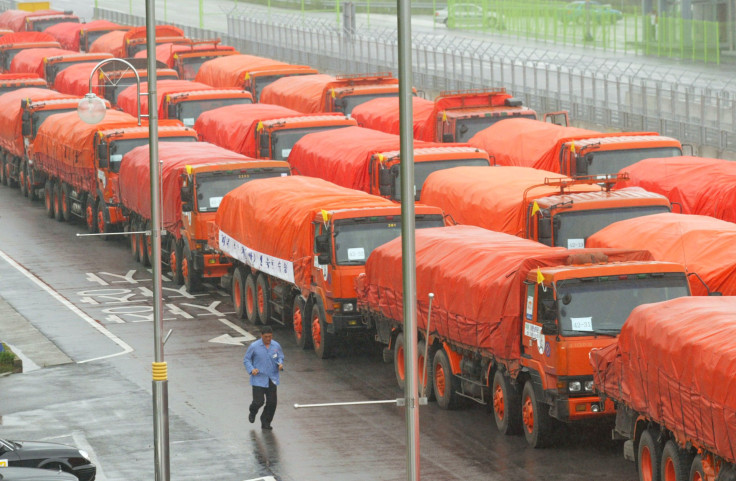South Korea Will Continue Sending Humanitarian Aid To North Korea Despite Sanctions

South Korea’s Ministry of Unification said Wednesday that it would continue to allow civic groups to offer humanitarian assistance to the people in North Korea, despite slapping unilateral punitive sanctions against the reclusive nation on Tuesday. South Korea’s sanctions come after the United Nations Security Council unveiled its harsher set of sanctions against the Kim Jong Un regime last week, following the recent rocket launch and nuclear test conducted by the country.
“Despite the new sanctions, there is no change in the government's stance that Seoul will continue to offer humanitarian aid to North Koreans including infants and their mothers,” Jeong Joon-hee, a ministry spokesman, said, according to Yonhap. “But we will take a cautious approach in deciding the timing and size of the assistance by taking various factors into consideration.”
In 2010, South Korea imposed sanctions against North Korea that included cancelling a state-backed assistance to Pyongyang. However, the country allowed civic groups to help out the underprivileged people in the North indirectly through international organizations. The sanctions were placed as a punishment over the sinking of a South Korean warship in March that year, killing 46 sailors, which Seoul believes was done by North Korea.
A report in April last year by the U.N. said that about 70 percent of North Korea's 24.6 million people are suffering due to food shortages, Yonhap reported. The report added that 1.8 million, including children and pregnant women, need food supplies that can help them tackle malnutrition.
Through its sanctions announced Tuesday, Seoul said it would target 40 individuals and 30 entities for Pyongyang's weapons program, along with imposing a ban on any vessel that had stopped at North Korean ports over the last 180 days. The targeted individuals in the latest sanctions include a Singaporean and a Taiwanese national. South Korea’s foreign ministry also announced that it would not participate in a pilot project that brought Russian coal to South Korea via the North Korean port Rajin.
However, despite the international criticism over North Korea’s nuclear programs and missile tests, Kim Jong Un said, according to the state-run news agency KCNA, that the country has made nuclear warheads that are small enough to be fit on ballistic missiles. Pyongyang has been claiming repeatedly that it had entered the phase of miniaturizing the warheads, but critics have been skeptical of its claims.
Wednesday's announcement by North Korea also followed its threat to launch a “pre-emptive nuclear strike” against the U.S. and South Korea, if they continued with their largest-ever annual military exercise. The drills, with over 300,000 South Korean and 17,000 U.S. troops, began Monday ignoring the threat.
On Wednesday, a South Korean military official also said that his country and the U.S. are upgrading their command center for combined air operations in an effort to get more information on North Korea. The officials reportedly said the overhaul of the Korean Air and Space Operations Center, which was believed to have become outdated, started last year and will take several years to complete.
“Currently, it is in the initial stages and redesign is underway,” the military official said, according to Yonhap. “The update will enable the militaries of South Korea and the U.S. to have the closest information sharing system among any alliance in the world.”
© Copyright IBTimes 2024. All rights reserved.












